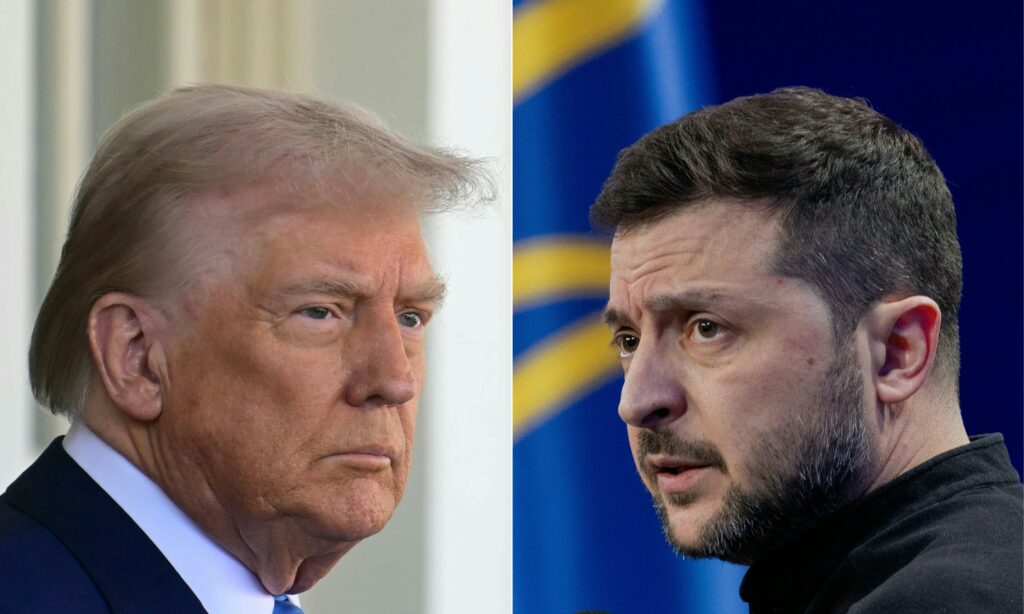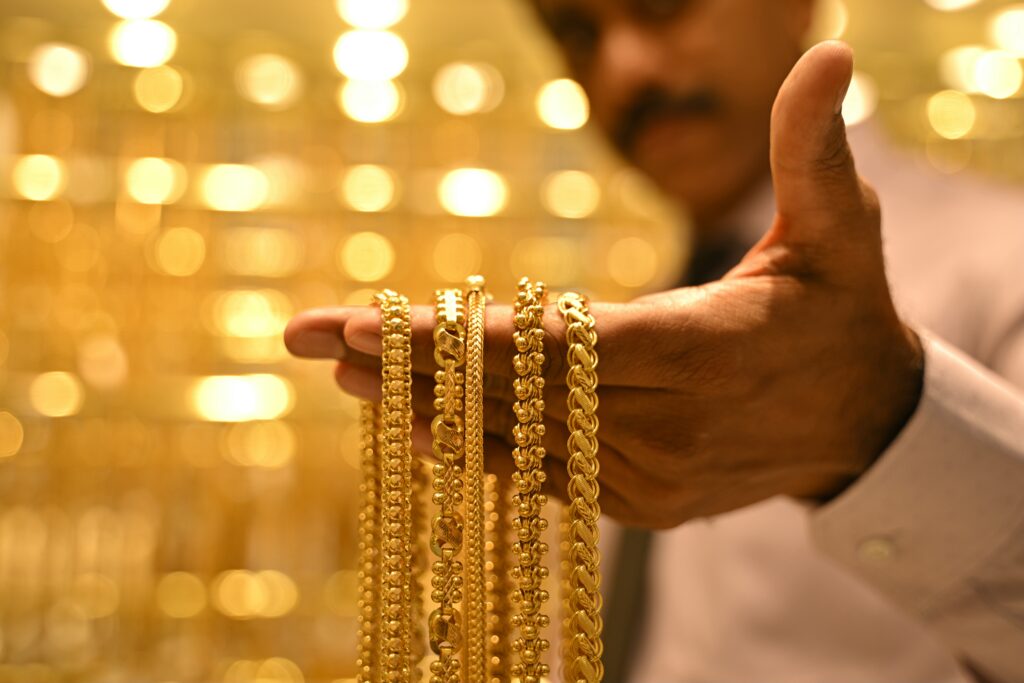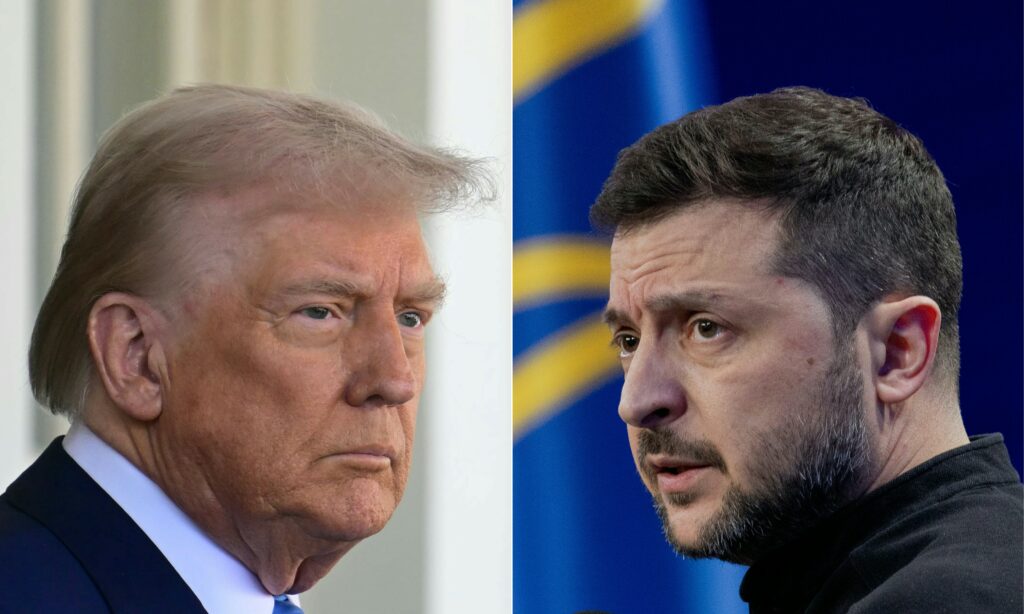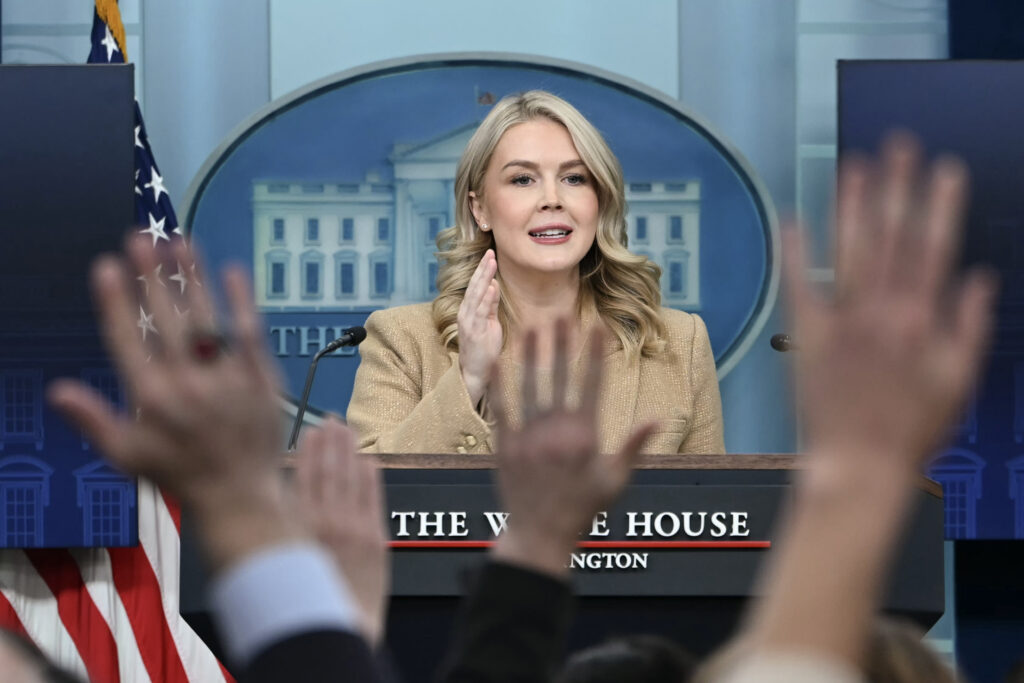Zelensky doit s’entretenir avec Trump dimanche en Floride
Le président ukrainien Volodymyr Zelensky doit rencontrer dimanche en Floride son homologue américain Donald Trump pour évoquer la question sensible des territoires, dans le cadre des négociations pour mettre fin à la guerre avec la Russie.Cette réunion aura lieu quelques jours après que M. Zelensky a dévoilé les détails de la nouvelle mouture du plan américain visant à mettre fin au conflit, qui a été retravaillée après des pourparlers avec l’Ukraine. Une version critiquée par Moscou, qui a accusé Kiev de vouloir “torpiller” les négociations.Ce document prévoit un gel de l’actuelle ligne de front sans offrir de solution immédiate concernant les revendications territoriales de la Russie, qui occupe plus de 19% de l’Ukraine. M. Zelensky avait dit vouloir discuter de ce sujet en face-à-face avec le président Trump.”Nous avons un programme chargé, cela se passera pendant le week-end, je pense dimanche, en Floride, où nous aurons une réunion avec le président Trump”, a déclaré vendredi le chef de l’Etat ukrainien à des journalistes, dont ceux de l’AFP. Son cabinet a ensuite confirmé que la rencontre était “prévue” pour dimanche en Floride, où le président américain passe les fêtes de fin d’année dans sa résidence Mar-a-Lago.Selon M. Zelensky, les discussions porteront sur les “questions sensibles” du sort du Donbass, une région industrielle et minière de l’est l’Ukraine que Moscou revendique, et de la centrale nucléaire de Zaporijjia (Sud) occupée par les soldats russes.Les deux hommes évoqueront aussi les garanties de sécurité que les Occidentaux pourraient fournir à l’Ukraine dans le cadre d’un éventuel accord de paix avec la Russie, a-t-il poursuivi.”Il y a certaines questions dont nous ne pouvons discuter qu’au niveau des dirigeants”, a expliqué le président ukrainien.- Dans l’attente de la réponse de Moscou -Volodymyr Zelensky “n’a rien tant que je ne donne pas mon accord”, a averti vendredi Donald Trump.”Donc nous verrons bien ce qu’il a”, a ajouté le président américain, dans un entretien au site internet Politico. “Je pense que ça se passera bien avec lui. Je pense que ça se passera bien avec (le président russe Vladimir) Poutine”, avec lequel il prévoit de s’entretenir “bientôt”, a-t-il relevé.La dernière version du plan américain, un document en 20 points, propose de geler les positions des deux camps sans répondre à la demande russe d’un retrait des forces ukrainiennes des quelque 20% de la région de Donetsk – métropole du Donbass – qu’elles contrôlent encore.Contrairement à la version originale rédigée par les Américains et présentée il y a plus d’un mois, le nouveau texte ne comprend plus aucune obligation juridique de non-adhésion à l’Otan pour l’Ukraine, un chiffon rouge pour Moscou qui a présenté cette question comme une des causes de la guerre.Pour ces raisons, l’accord de la Russie à ce document en l’état paraît improbable.Le nouveau texte “diffère radicalement” de ce qui avait été négocié entre Washington et Moscou, a constaté vendredi le vice-ministre russe des Affaires étrangères, Sergueï Riabkov, appelant à revenir aux ententes antérieures, faute de quoi “aucun accord ne pourra être conclu”.”Sans une résolution adéquate des problèmes qui sont à l’origine de cette crise, il sera tout simplement impossible de parvenir à un accord définitif”, a-t-il affirmé, accusant Kiev et ses alliés européens de “redoubler d’efforts pour torpiller” les tractations diplomatiques.Le porte-parole du Kremlin, Dmitri Peskov, a fait savoir qu’un “contact téléphonique” avait “eu lieu” entre Russes et Américains mais a refusé d’en révéler les détails car “la diffusion de ces informations pourrait avoir un impact négatif sur le processus de négociation”.”Il a été convenu de poursuivre le dialogue”, a-t-il insisté au cours d’un briefing auquel a participé l’AFP. M. Peskov avait précédemment expliqué que son pays était en train de “formuler sa position” en réponse au plan américain remanié avec les Ukrainiens.- Frappe sur Kharkiv -M. Zelensky a pour sa part déclaré vendredi qu’il s’attendait à une réponse des Russes aux Américains “dans les prochains jours”. Il a indiqué qu’il s’était entretenu, entre autres, avec le chancelier allemand Friedrich Merz et le secrétaire général de l’Otan, Mark Rutte.Downing Street a de son côté fait savoir que le Premier ministre britannique Keir Starmer avait échangé vendredi après-midi avec le président français Emmanuel Macron, et M. Merz. “Les dirigeants ont réaffirmé (…) leur détermination sans faille à fournir à l’Ukraine le soutien dont elle a besoin (et) sont convenus de continuer à se coordonner avec leurs partenaires et alliés afin d’aboutir à une paix durable”, ont indiqué ses services.En attendant une percée dans les négociations, les combats et les bombardements continuent.Vendredi, deux personnes ont été tuées et quatre blessées dans une frappe russe sur Kharkiv, la deuxième ville d’Ukraine, non loin de la ligne de front dans le nord-est. Les Ukrainiens ont affirmé jeudi avoir frappé une importante raffinerie de pétrole dans le sud de la Russie avec des missiles britanniques de longue portée Storm Shadow.Sur le front, l’armée russe a accéléré ses avancées ces derniers mois. Mardi, les troupes ukrainiennes avaient dit s’être retirées de Siversk, une ville de l’est, face aux assauts ennemis. Une prise facilitant l’approche des dernières grandes cités du Donbass encore sous contrôle ukrainien, Kramatorsk et Sloviansk.







